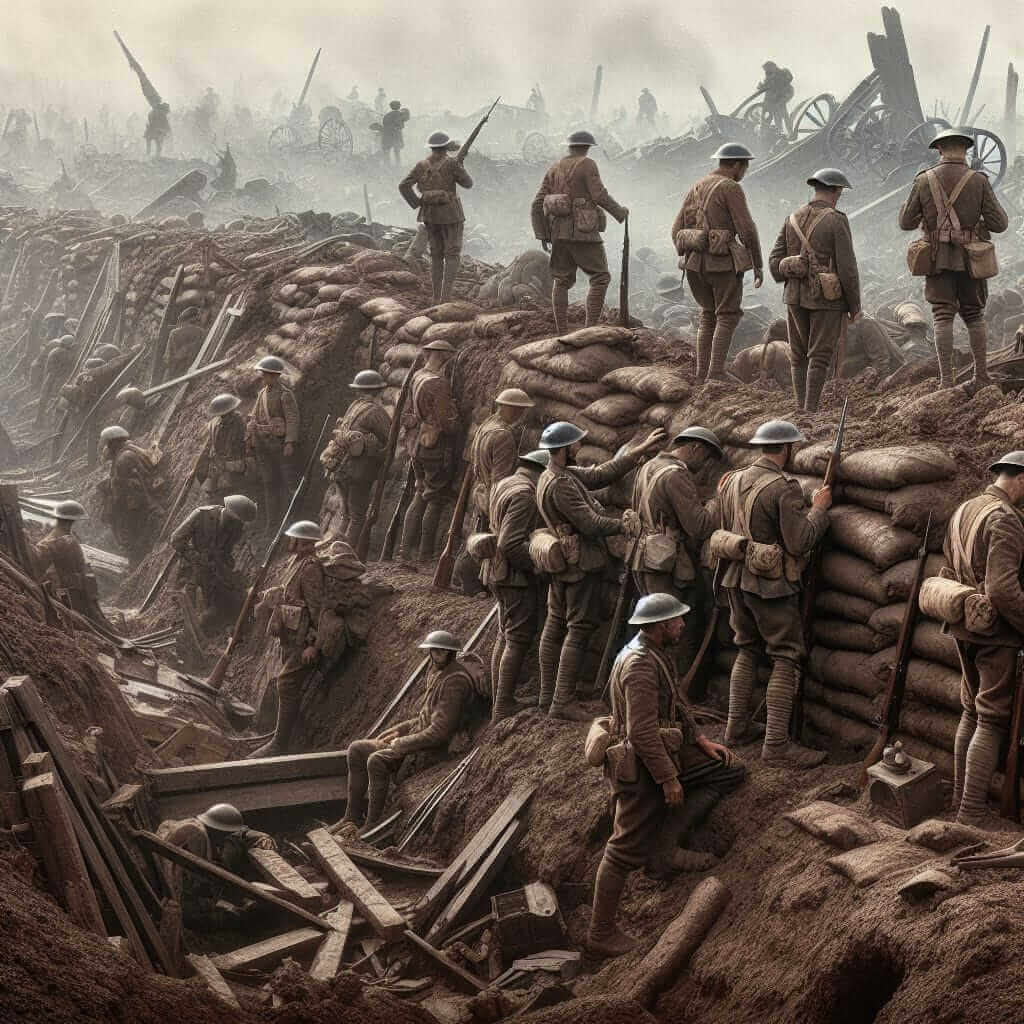The IELTS Reading section is designed to assess a candidate’s ability to read and understand complex texts. The passages in this section are often sourced from books, journals, magazines, and newspapers, covering a wide range of topics. Historical analysis of major wars is a recurring theme, reflecting the significance of understanding our past conflicts to comprehend current global affairs. This topic tend to appear due to its rich content and the variety of perspectives it can offer. As we delve into this subject, we provide a comprehensive IELTS reading practice test to help you prepare effectively.
Practice Reading Passage: Historical Analysis of Major Wars
This passage explores the significant wars that have shaped modern history, analyzing their causes, consequences, and lasting impacts. The text chosen for this practice test emulates the complexity and formatting of an actual IELTS Reading text.
Historical Analysis of Major Wars
The Causes of Major Wars
Wars have been a part of human history since ancient times. One of the leading causes of major wars has been the struggle for power and resources. For instance, the two World Wars of the 20th century were primarily driven by nationalism, imperialism, and the desire for economic dominance. The assassination of Archduke Franz Ferdinand of Austria-Hungary in 1914 ignited World War I, while the Treaty of Versailles’s harsh terms on Germany sowed the seeds for World War II.
Consequences of Wars
The aftermath of major wars has reshaped the global political landscape. World War I led to the downfall of empires and the birth of new nations, while World War II resulted in the establishment of the United Nations and the beginning of the Cold War. The economic consequences of wars are staggering, often leaving countries with devastated infrastructures and enormous debts. Additionally, wars result in significant human casualties and disrupt the social fabric of nations.
The Lasting Impacts of Wars
The impacts of wars extend far beyond immediate geographical and political boundaries. They have led to advancements in technology and medicine, driven by the necessity to support war efforts. For example, World War II saw significant developments in radar, jet engines, and antibiotics. Moreover, the psychological impacts on soldiers and civilians create a lasting emotional and cultural legacy that shapes societies for generations.

Questions
Multiple Choice
-
According to the passage, what was a primary cause of World War I?
a. Economic disparity
b. The assassination of Archduke Franz Ferdinand
c. Treaty of Versailles -
What significant development in medicine was driven by World War II?
a. X-ray technology
b. Vaccines
c. Antibiotics
True/False/Not Given
- World War I led to the beginning of the Cold War.
- All wars result in significant technological advancements.
Matching Information
- Match the following impacts with their corresponding wars:
- The fall of empires
- Establishment of the United Nations
- Development of radar
Sentence Completion
- The struggle for power and resources has been a leading cause of ___.
- Wars often result in significant __ and disrupt the social fabric of nations.
Summary Completion
Complete the following summary with words from the text:
Wars have significantly __ the global political landscape by bringing down empires and creating new nations. They have also led to __ in various fields, including technology and medicine, driven by the necessities of wartime.
Answer Key and Explanations
- b. The assassination of Archduke Franz Ferdinand – The passage explicitly mentions that the assassination was the trigger for World War I.
- c. Antibiotics – The text cites antibiotics as a major development driven by World War II.
- False – The text states that World War II led to the beginning of the Cold War, not World War I.
- Not Given – The text does not claim that all wars result in significant technological advancements, only that some do.
-
- The fall of empires: World War I
- Establishment of the United Nations: World War II
- Development of radar: World War II
- Power and resources
- Human casualties
Summary:
Wars have significantly reshaped the global political landscape by bringing down empires and creating new nations. They have also led to advancements in various fields, including technology and medicine, driven by the necessities of wartime.
Common Mistakes
- Failing to grasp the overall context can lead to incorrect answers in Matching Information or Summary Completion sections.
- Misinterpreting True/False/Not Given questions due to overlooking key details.
Vocabulary
- Imperialism (noun) [ɪmˈpɪəriəˌlɪzəm]: a policy of extending a country’s power and influence through diplomacy or military force.
- Versailles (noun) [vɛːˈsaɪ]: The Treaty of Versailles, a peace treaty that ended World War I.
- Infrastructure (noun) [ˈɪnfrəˌstrʌktʃər]: the basic physical and organizational structures and facilities.
Grammar
- Complex Sentences: Use of subordinating conjunctions like “while” to link ideas.
- Example: “World War I led to the downfall of empires, while World War II resulted in the establishment of the United Nations.”
Study Tips for High IELTS Reading Scores
- Practice Regularly: Regular reading practice with complex texts is crucial.
- Understand Question Types: Familiarize yourself with various question types in the IELTS Reading section.
- Timed Practice: Always time your reading practice to build speed and efficiency.
- Build Vocabulary: Continuously expand your vocabulary to better understand and analyze texts.
By engaging with texts such as these, you can significantly improve your reading comprehension skills, which are essential for achieving a high score in the IELTS Reading section.
For more insightful reading materials, visit our related articles on Historical Analysis of Global Pandemics.